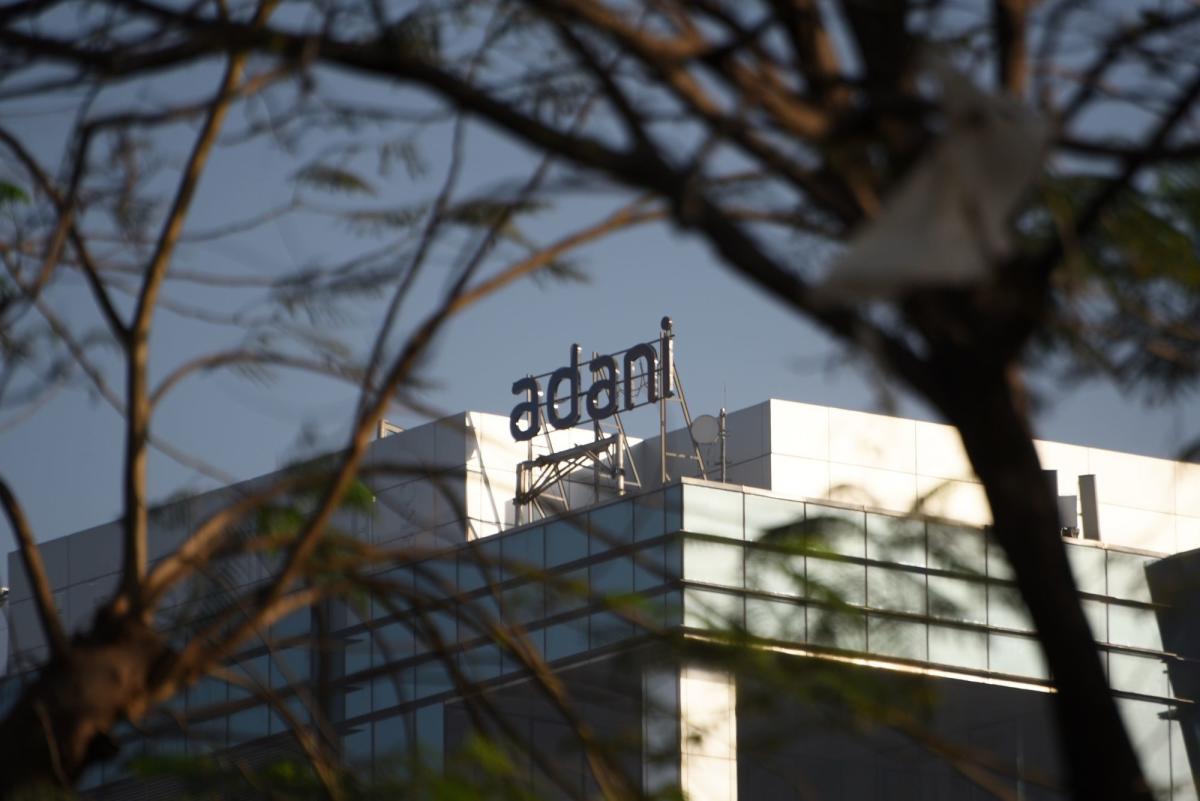
(Bloomberg) — Funding deals across the Adani Group conglomerate have sent a new chill through the ESG markets as investors realize new risk.
Bloomberg’s Most Read
Norway’s largest pension fund, KLP, recently divested its entire stake in Adani Green Energy Ltd., the empire’s renewables arm, amid concerns that it may have inadvertently helped finance some of the most polluting activities in the world through participation. A public filing on February 10 has since made it clear that Adani is using shares in its green companies as collateral in a line of credit that helps finance the Carmichael coal mine in Australia, through Adani Enterprises Ltd.
KLP has blacklisted coal in its portfolio, so any indirect financing of the Carmichael project would represent a “breach of our commitments,” Kiran Aziz, KLP’s chief investment officer, said in an interview.
Since short seller Hindenburg Research published its critical report on January 24, investors have responded to its allegations of fraud and market manipulation by selling Adani shares. But for investors with environmental, social and governance mandates, there is an added layer of pain in realizing that their green dollars were indirectly supporting dirtier fossil fuels.
“Investments in other parts of the Adani Group are seeping into the Carmichael funding,” said Ulf Erlandsson, chief executive of the Anthropocene Fixed Income Institute, which has been tracking the Adani Group since mid-2020. “Investors who have restrictions on finance greenfield thermal coal mining should review potential exposures across the Adani Group.”
More than 500 funds registered in the European Union as “promoters” of ESG objectives hold Adani shares, either directly or indirectly, according to data compiled by Bloomberg.
A spokesman for Adani did not respond to a request for comment. The conglomerate has repeatedly denied the allegations in the Hindenburg report and has threatened legal action.
AFII’s Erlandsson said an equity investor pledging shares as collateral does not necessarily contaminate other shareholders. But the “high concentration of share ownership and other interrelationships” in the Adani conglomerate represents an additional layer of risk, he said. A higher price in Adani Green’s shares increases the value of the collateral, which reduces the credit risk for SBI’s financing of the coal project, which then “hypothetically, materializes in the bank being able to offer a rate interest rate for Carmichael,” he said.
Adani Green’s share price has fallen nearly 70% this year, while its debt has also plummeted. The company said on February 7 that it had won backing from investors after reporting third-quarter net income that more than doubled from a year earlier. Adani Green CEO Vneet S. Jaain said the results demonstrated the company has a “robust capital management program with leverage well aligned with the business model.”
On February 16, it was learned that the conglomerate is in talks with potential investors to raise up to $1.5 billion through the sale of notes by Adani Green, Adani Transmission Ltd. and Adani Ports & Special Economic Zone Ltd., according to people. familiar with the matter. process.
Read more: Who is Adani and what are Hindenburg’s accusations?: QuickTake
The Hindenburg report found that “the Adani Group companies are intricately and clearly linked and dependent on one another. None of the listed entities is isolated from the performance, or failure, of the other companies in the group.”
The Carmichael coal mine, located inland from Australia’s iconic Great Barrier Reef in Queensland, has become a lightning rod for climate activists for the environmental destruction the facility represents. Rejection also came from banks, insurers and investors, amid alarm over the mine’s carbon footprint.
MSCI Inc. gives Adani Green an A rating, and the entity is included in several of its ESG and Climate indices. S&P Global Inc. said this month it would remove Adani Enterprises from its Dow Jones Sustainability Indexes. Sustainalytics has downgraded the ESG scores of several Adani companies. MSCI said it will start reviewing ESG index positions more frequently, in response to questions about its approach.
Norway’s KLP, which manages around 765 billion Norwegian krone ($75 billion), sold its position in Adani Green on January 30, joining five other Adani companies it had previously excluded from its investment universe.
“Adani’s corporate structure created an unacceptably high risk that ‘clean’ investment could be diverted into coal mining,” Aziz said.
Adani Green’s largest third-party holder is TotalEnergies SE, which acquired a 20% stake in 2021. The French energy giant confirmed its withdrawal from coal production and trading in 2015. CEO Patrick Pouyanne said earlier this month that Adani Green and Adani Total Gas Ltd., in which he has also invested, are “healthy” companies.
“The shares that TotalEnergies owns in AGEL are not pledged or used as collateral for any financing or any other project,” a company spokesperson said. “TotalEnergies has no involvement in the use of shares held by other AGEL shareholders as collateral or for other purposes.”
–With assistance from Gina Turner, PR Sanjai and Saikat Das.
Bloomberg Businessweek Most Read
©2023 Bloomberg L.P.
